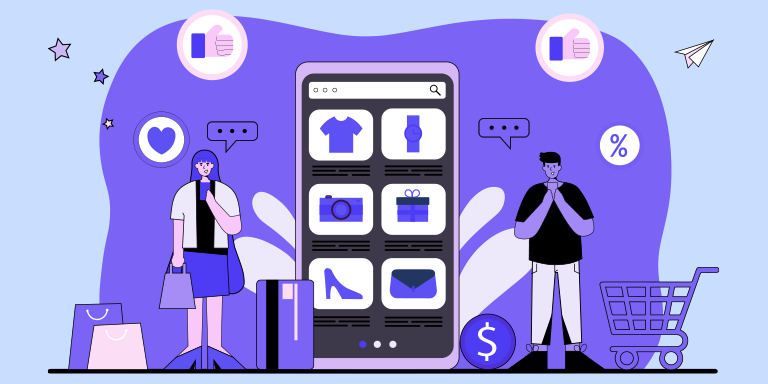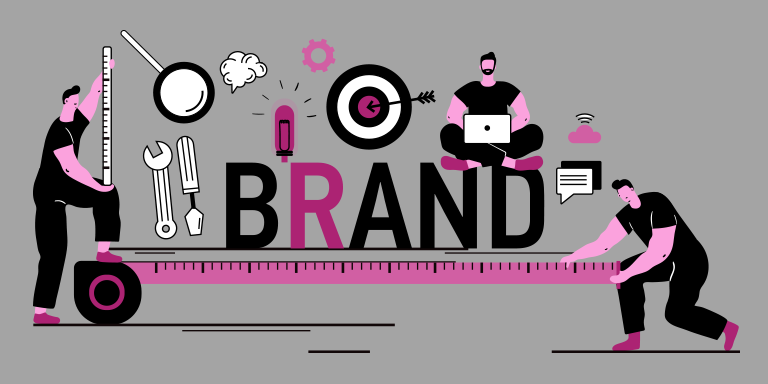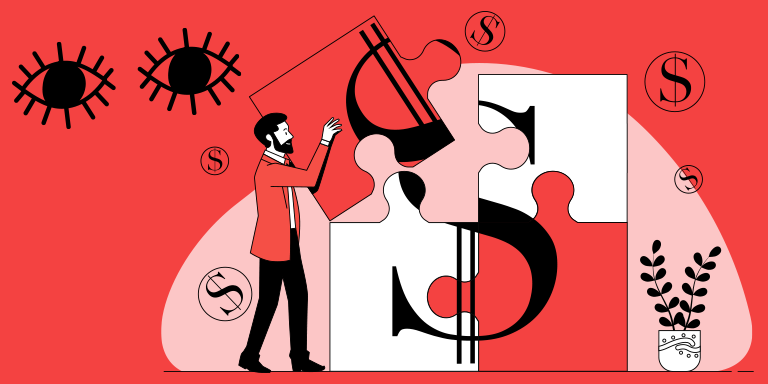Whether you’re a startup or a global powerhouse, hopping on the podcast bandwagon is a smart move to boost your brand awareness, increase sales or subscriptions and dive deeper into the data of your target demographics.
The best part is that all of this has the potential to be achieved with a smaller budget than traditional advertising.
With the podcast space evolving rapidly and key trends reflecting shifts in listener habits, now is a great time for you to leverage podcasting for growth. Read this article for how to make a great podcast.
Key Takeaways
- 78% of people listen to podcasts that align with their specific niches and interests – make sure you know what your niche is and how to target listeners in this community.
- Podcast listeners are loyal, with 85% of them tuning into multiple episodes of their favorite shows, giving you the opportunity to create long-term customers.
- Podcasts offer fantastic opportunities to repurpose content on various channels. Utilize the most-relevant platforms such as social media, YouTube or blog posts to increase the reach of your ads or podcast further.
The Benefits of Podcasts for Brand Awareness
Podcasts are booming in 2024, with forecasts suggesting that there will be over 500 million global podcast listeners by the end of the year.
These listeners engage with a wide variety of niche genres, from true crime to tech and entrepreneurship. If you are looking for some top tips on how to start your own podcast, read this.
1. Reaching Niche Audiences Like Never Before
Podcasts are all about the niche. Whether it’s true crime, tech, wellness, or business tips, listeners are loyal and engaged. This means you can target specific groups who are already interested in topics related to your brand.
For example, HubSpot’s “The Hustle Daily Show” taps into the startup and entrepreneurial crowd by diving deep into daily business news and trends. HubSpot has reported significant increases in sign-ups from small business owners who became aware of their brand through the podcast, making it a highly targeted and effective tool.
By sponsoring episodes or creating content that resonates with niche listeners, your brand instantly connects with relevant audiences.
2. Podcasts Build Trust & Authenticity
83% of listeners say they trust podcast hosts more than traditional advertisements, which reinforces the authenticity of brands that partner with trusted podcast personalities. Listening to Oprah Winfrey’s Super Soul podcast makes you feel like she’s sat in the room with you and I don’t know about you, but I’m certainly going to trust everything she says.
Unlike traditional ads, podcasts let brands engage in a more authentic and intimate way. Squarespace has mastered this by partnering with high-profile podcasts like The Tim Ferriss Show, contributing to the company’s $300 million annual revenue.
Ferriss casually mentions his own experience using the product, making it feel like a genuine recommendation.
3. Podcasts Drive Brand Awareness and Engagement
67% of listeners say podcast ads raise their awareness about new products and services. Listeners tune in while commuting, cooking, or working out, meaning they’re invested and less likely to skip ads – winning! This means that podcast listeners have some of the highest engagement rates in digital media.
Take BetterHelp, the online therapy platform. They consistently advertise on wellness and mental health podcasts. After investing heavily in podcast ads, BetterHelp saw a 60% increase in sign-ups from listeners, and podcast ads now account for a significant portion of their marketing strategy.
You could invest in AI-driven ad platforms like Megaphone or programmatic ad buying to help place targeted ads into the ears of relevant listeners, driving engagement.
4. Cost-Effective Branding
Podcast ads and sponsorships can often be more affordable than other types of marketing yet still drive high ROI. Despite this, podcast ad spending in the U.S is expected to reach $2.5 billion by the end of 2024!
Brands like HelloFresh have built huge visibility by sponsoring a variety of podcasts, from food to lifestyle shows like Armchair Expert.
By 2023, HelloFresh saw a 50% increase in subscriptions due to their podcast sponsorships, significantly lowering their cost-per-acquisition compared to other channels.
5. Creating Long-Form Content for Deeper Connections
Podcasts let brands dive deeper into storytelling through longer-form content. Instead of 30-second ads, you can have longer, meaningful conversations. This is where branded podcasts come in.
GE’s “The Message” is a great example of a company producing its own narrative podcast, blending science fiction with real-world innovation. The show was so good people didn’t even realize it was branded content. It boosted awareness around GE’s tech-forward thinking.
6. Cross-Promotion Opportunities Are Everywhere
When a brand sponsors a podcast or even creates its own, they gain access to the podcast host’s social media following. It’s a two-for-one deal, and who doesn’t love a bargain?
Brands can repurpose their podcast content on multiple channels such as Twitter, Instagram, and YouTube, you name it, and get even more eyeballs on their ads.
Look at Athletic Greens, a wellness company that frequently sponsors health-focused podcasts like The Joe Rogan Experience.
Not only do they get shout-outs on the podcast, but Joe Rogan’s massive 15 million following also amplifies their message through his social and Youtube channels. Win-win!
7. Podcasts Offer Great Data & Analytics
In 2024, podcast platforms provide robust analytics such as; downloads, listens and listener demographics. With tools like Megaphone or Spotify’s Ad Studio, companies can see what’s working and refine their messaging to boost performance.
Mailchimp has leveraged this data to optimize its podcast ads, tailoring them to specific audience behaviors, resulting in higher conversion rates. Tailoring your message is key and you cannot tap into your audience’s wants, needs and desires without data.
In short, podcasts are one of the best ways to build brand awareness in today’s market. With targeted audiences, high engagement, and authentic storytelling, your brand can make a genuine connection with potential customers.
So, if you haven’t considered podcasting as part of your marketing strategy yet, it’s definitely time to tune in!
Are you looking for honest advice around what marketing channels will suit your business? Stay updated with the latest marketing tactics to build and grow your audience through live coaching and support from the Foundr business team for just $1 a month.
You will also gain access to over 1000+ lessons that will accelerate your business growth and development! Get access here.
5 Brand Podcasts You Should Listen To
If you’re looking for some inspiration, check out these podcasts – all of them are sponsored by various brands or are a brand themselves. If you want a further list of the best business podcasts, check out this article.
Foundr Podcast with Nathan Chan
The Foundr Podcast with Nathan Chan is one of the leading global entrepreneurship podcasts with a significant impact on the startup and small business communities. Launching in 2014, the show has over 500 episodes to date, featuring interviews with top entrepreneurs like Mark Cuban, Tony Robbins, Tim Ferriss, and Daymond John.
Each episode dives deep into actionable strategies and insights from these business leaders, helping inspire and educate its listeners.
The Joe Rogan Experience
As I’ve already mentioned, Joe Rogan dominates the podcast charts with an average 11 million listeners per episode! Known for his long-form interviews that cover a variety of topics such as politics, culture, science, and entertainment, it attracts a wide demographic. His ability to host guests ranging from Elon Musk and David Goggins to scientists like Neil deGrasse Tyson keeps the audience engaged.
Huberman Lab
Hosted by neuroscientist Dr. Andrew Huberman, this podcast has gained popularity by making complex health and science topics accessible. Its episodes are also filmed for his YouTube channel, with some videos hitting 3 millions views, meaning he’s targeting an even broader demographic. He is also very active on his social channels which frequently promote clips from the pod.
Lex Fridman Podcast
Fridman’s podcast mixes conversations on technology, AI, and philosophical discussions with a wide range of high-profile guests like Elon Musk and Sam Harris. He regularly draws large audiences, cementing Fridman’s podcast as a top intellectual show, gaining a strong following among tech enthusiasts and curious minds. He has also harnessed the power of video and has grown his YouTube channel to 3.5 millions subscribers!
Rotten Mango
A true-crime podcast with a twist of dark humor, hosted by Stephanie Soo, Rotten Mango continues to grow in popularity. Its unique blend of storytelling and comedy makes it stand out in the oversaturated true-crime genre, drawing in both hardcore true-crime fans and newcomers.
FAQs:
How can podcasts be integrated into a brand’s marketing strategy?
Podcasts are a powerful marketing tool for storytelling and building deeper connections with audiences. Brands can integrate podcasts by:
- Sponsoring podcasts relevant to their target audience.
- Creating branded content or podcasts centered around their industry or products.
- Using podcasts as a channel for thought leadership, showcasing industry expertise.
- Cross-promoting podcasts on social media and other digital platforms to drive engagement and reach.
What are the benefits of using podcasts for advertising over other platforms?
Podcast ads, especially host-read ads, are effective because they:
- Feel more authentic and less intrusive.
- Are integrated directly into the content, leading to higher listener engagement.
- Benefit from brand association with trusted podcast hosts.
- Target niche audiences effectively through genre-specific podcasts.
How can a brand measure the success of a podcast advertising campaign?
Podcasting streaming platforms have a lot of data available on the listeners but what about the ads? With the right tools you can track the ROI through the following:
- Unique promo codes or URLs
- Dynamic ad insertion to monitor impressions and listener demographics.
- Surveys or feedback forms from listeners to assess brand awareness or changes in perception after hearing an ad.
- Third-party analytics platforms to track downloads and listener data
















